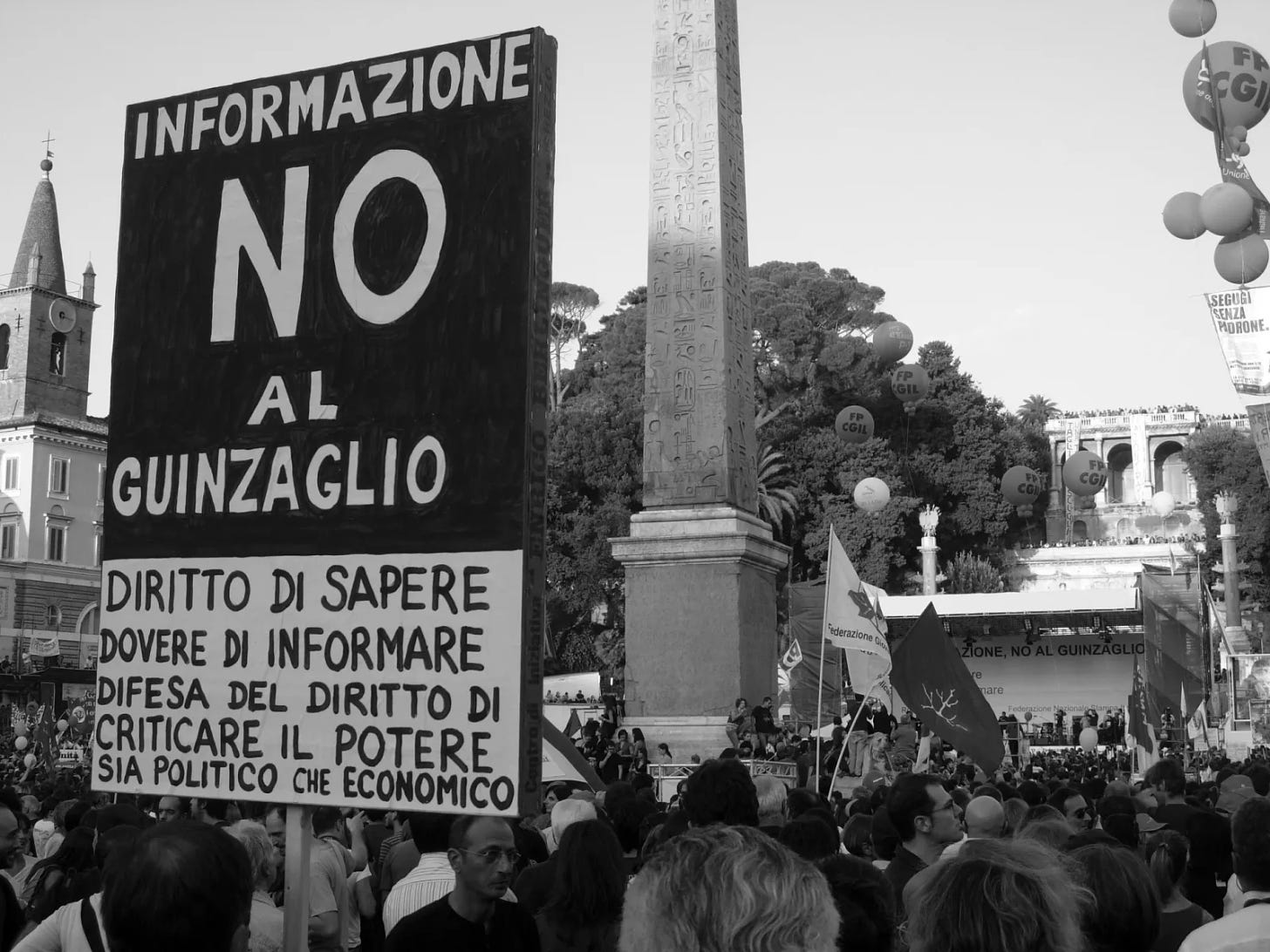Media Freedom in Italy
Giorgia Meloni’s Administration Tightens Its Grip on the Media
Government pressure on the media in Italy is intensifying despite early warnings. Recently, the country’s press freedom index has dropped further, reflecting changes observed during the two-year administration of the Brothers of Italy. Reports indicate this period has been marked by increased political interference in public media, harassment of journalists, and media capture.
Journalists have also faced physical violence. Most recently, Andrea Joly, a journalist for La Stampa, was assaulted by members of the neo-fascist organization CasaPound after reporting from one of their meetings in Turin this month.
The number of incidents against journalists and media workers has significantly increased since Giorgia Meloni became prime minister. Between October 2022 and June 2024, the tool Mapping Media Freedom recorded 193 various incidents against media workers, up from 88 reported incidents in the two years preceding it. These incidents include legal procedures to bully journalists, otherwise known as SLAPP suits, attempts at censorship, and verbal attacks.
A quarter of incidents recorded during Meloni’s administration originated from public officers. Government officials have repeatedly and falsely denounced journalists and other media figures for alleged defamation, particularly in cases of reporting on organized crime, anti-fascism, and the association of the Brothers of Italy’s youth organizations with antisemitism and racism. The long list of cases includes Prime Minister Meloni’s and Lega leader Matteo Salvini’s defamation suits against reporter and writer Roberto Saviano, as well as a targeted campaign against the media outlet Domani, described by reporter Francesca de Benedetti during the launch of the report “Silencing the Fourth Estate: Italy’s Democratic Drift.”
Meloni’s government has also succeeded in increasing its power over public media and news agencies. Italy’s main public broadcaster, RAI, has faced increased pressure on its program policy since 2023, when right-wing figureslike Roberto Sergio were appointed to leadership roles. As a result of the manipulations, the government was able to introduce and implement changes to election reporting rules that secured more airtime for Meloni’s functionaries ahead of elections.
“The intrusion of politics has become so strong that we see constant interference in editorial content, leading journalists or program makers to either leave RAI or self-censor,” said Valentina Grippo, Rapporteur on media freedom and safety of journalists, to an emergency mission on press freedom in May this year.
RAI is not the only media outlet threatened by political interference. News agency AGI, currently owned by the state-controlled fossil fuel company ENI, expressed concern after it was announced that it could be sold to Antonio Angelucci, a private healthcare and media mogul and current MP associated with the far-right Lega. This potential transaction poses new threats to AGI’s editorial independence and represents a possible conflict of interest, given that other Lega functionaries hold positions from which they could ensure preferential treatment for Angelucci’s offer, according to AGI worker Davide Sarsini.
AGI’s journalists, like those at RAI, have gone on strike over the right’s attempts to overtake media spaces. Media workers have faced backlash for these actions. Despite 75% of RAI’s journalists participating in industrial action in May this year, management went to great lengths to boycott reporting on the strike and undermine the workers’ demands. The anti-union activity was later recognized by a court decision in Rome, which the trade union USIGRai hailed as the first step in their fight to protect trade union activity and freedom of the press in the country.





